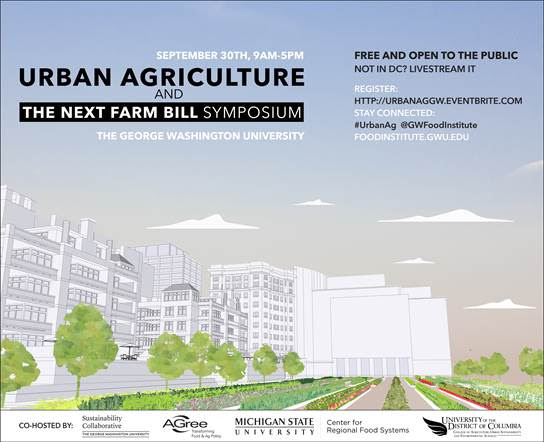The University of Calgary Department of Geography is announcing funding for Masters and Doctoral students who have an interest in Critical Urban Food Studies. Please see the announcement below from Dr. Marit Rosol for more information.
——————————————————————————————————
Seeking outstanding individuals for either Master or Ph.D. level studies in the Department of Geography, University of Calgary, with a strong interest in Critical Urban Food Studies
Start date will be January 2017 (preferably) or possibly September 2017. Please apply internally to Prof. Dr. Marit Rosol before 23 August 2016 (see below).
Qualifications:
- Research project idea that fits within the team’s focus on critical urban food geographies and food justice
- Outstanding previous degree performance
- Enthusiasm for research, including interest (M.A.) or experience (Ph.D.) in producing peer-reviewed publications, as well as willingness to participate in off-campus activities such as conferences, workshops, or meetings
- Excellent written and verbal communication skills, well-developed organizational skills
- An ability to work independently, as well as collaboratively, to multi-task, and contribute to research projects in a team outside of your core research
More information on my own research can be found here: geog.ucalgary.ca/profiles/1-7364639
Funding:
You need to apply for funding through scholarships and/ or through the Department of Geography. Funding will be awarded from the department competitively on the basis of degree performance, research productivity, references supplied, and teaching ability. Funding for M.A. students is $19,000/yr (2 years), and $21,000/yr for Ph.D. students (4 years). International students, who pay higher tuition fees, receive a slightly larger stipend. For academic programme requirements and departmental funding see: geog.ucalgary.ca/sites/geog.ucalgary.ca/files/…
You may receive additional funding through my research grants. Further support for field work, conferences and other project-related travel can also be awarded.
How to apply:
Please direct questions to Marit Rosol (marit.rosol@ucalgary.ca; phone: +1 403 220 6200). Interested applicants are asked to email the following documents in a single pdf-file to me before 23 August 2016:
- cover letter/ statement of interest
- outline of potential research project (containing a title, topic, research question, background and relevance, research design/ methodology, potential empirical case study including geographical location, max. 1 page + short bibliography
- current CV
- names and contact details of two potential referees
- transcripts
Formal application deadline for program will be September 15th 2016 (for entry in January). More information on the graduate programs (thesis-based) see here: geog.ucalgary.ca/graduate/prospective-students
Minimum academic requirements for Graduate Studies are a 3.00 grade point average on the 4 point scale calculated over the last two full years of a four year undergraduate degree or equivalent. Ph.D. applicants also require a Master´s degree. If your degree is not from a Canadian institution, you can check the Graduate Studies website for information on International requirements for admission at grad.ucalgary.ca/prospective/international-students. If your first language is not English, and you have not attended a University or College with a teaching medium of English, then you will have to provide either a minimum TOEFL score of 550 (paper-based) or 80 (internet–based system) or an IELTS score of 7.0.
About the University and the city of Calgary:
The University of Calgary is a leading comprehensive research university, with over 30,000 students, including over 5,000 graduate students, and ranks among the Canadian top ten on a broad cross-section of measures, including research funding, endowment, graduation of PhD students, fundraising, and the quality of its professoriate. The city of Calgary is a young and cosmopolitan city, and the nation’s most rapidly growing one. It has a light rail system with easy access to the University. Calgary boasts an extensive urban pathway and bikeway network. The city itself and the Rocky Mountains at about an hour’s drive distance offer countless recreation opportunities. It is also the sunniest of large Canadian cities (333 days per year).





 n her first year in the Masters of Urban and Regional Planning program at the University of Buffalo.
n her first year in the Masters of Urban and Regional Planning program at the University of Buffalo.